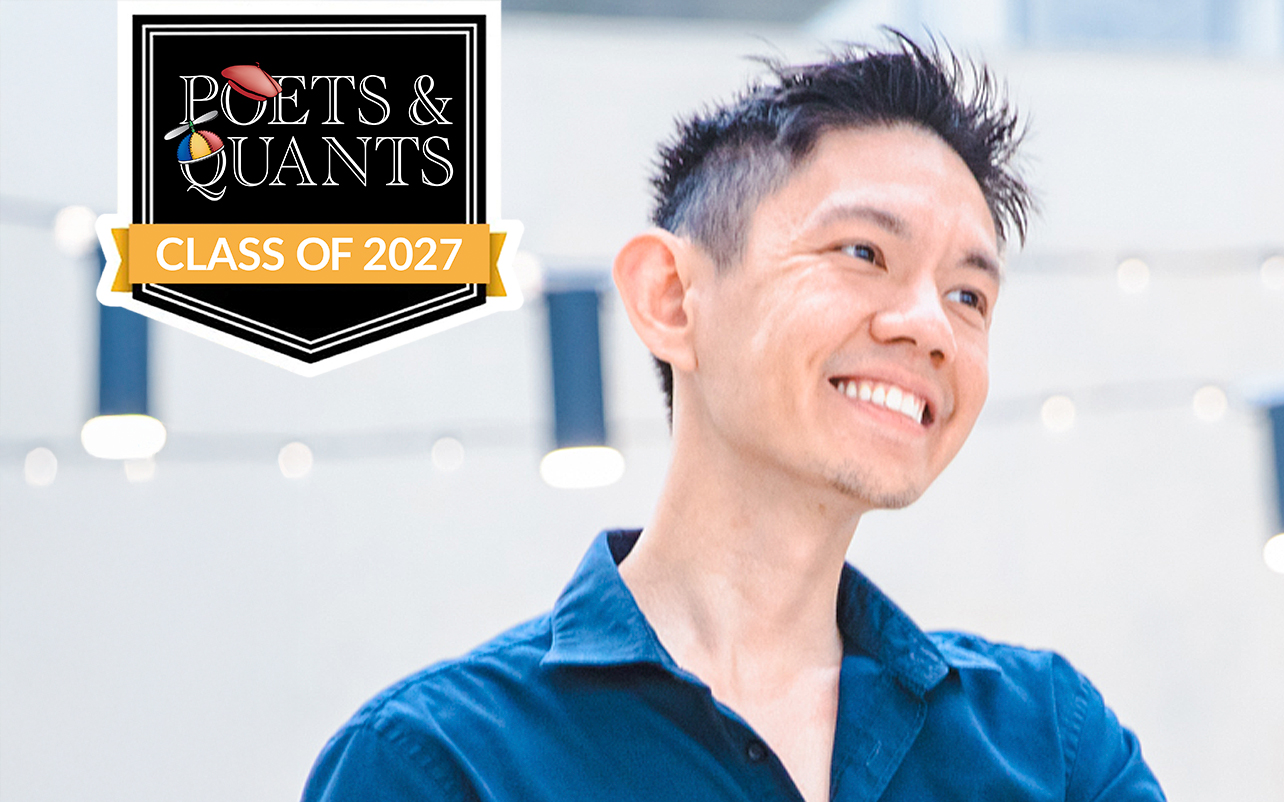“Cultivator of connected ecosystems for human connections to spark impact, rippling across industries and generations.”
Hometown: Austin, Texas
Fun Fact About Yourself: Raising ducks created some of my happiest memories.
Undergraduate School and Major: University of Houston, Double Major Entrepreneurship and Marketing with minor in Sales
Most Recent Employer and Job Title: Dell for Startups, Sr. Program Manager
Aside from your classmates, what was the key part of Carnegie Mellon’s MBA curriculum and programming that led you to choose this business school and why was it so important to you?
Being a part of the Swartz Center for Entrepreneurship and the genuine commitment of the Tepper School community to support my vision. Even before starting my MBA, the staff and professors have encouraged and supported my mission to bring people together to create a stronger connected ecosystem —already connecting me with opportunities to help bring Pittsburgh’s startup community together through Carnegie Mellon University. This wasn’t just a conversation about having access to resources; it was about creating a place to help find authentic partners who understand where I am trying to go and help proactively seek to support my mission.
When I shared my vision to impact a million people through community frameworks, I didn’t get polite nods—I got introductions, collaboration offers, and genuine excitement about co-creating this future. This level of investment in students’ purposes, where faculty become true collaborators in our journey, convinced me that the Tepper School is where my vision will become reality.
What course, club or activity excites you the most at Carnegie Mellon? Hard to say, there’s a lot of heart in the Tepper School’s MBA clubs especially around entrepreneurship. What I am most excited is the cross-pollination that could occur with the engineering and arts colleges. The moments where CMU student activities can collide to help support innovation and entrepreneurship is truly what I’m most excited for.
The Tepper MBA is known for intensive one-on-one coaching and personal development. What area do you hope to strengthen during your two years in business school and why? Self-confidence in high-stakes decision-making and executive presence. While I’m extremely comfortable building communities and bringing people together, I want to strengthen my ability to confidently advocate for unconventional ideas in boardrooms for all kinds of people. As I scale my vision to impact a million people through community frameworks, I’ll need to persuade established organizations, government agencies, non-profits, corporate, and startups to embrace new paradigms. I’m excited by the Tepper School’s leadership program to help me refine how I present disruptive concepts with the gravitas and data-enforced convictions needed to drive global change.
The Tepper MBA is also known for being highly data-driven Why does the program’s focus on quantitative analysis and decision-making appeal to you? How have been able to leverage this approach in your career so far? Leonardo da Vinci famously stated, “To develop a complete mind: Study the science of art; Study the art of science.” Learn how to see. Realize that everything connects to everything else. Community building is just that, half art, half science—and I’ve learned it’s the science which helps us transforms good intentions into measurable impact. Beyond creating spaces of belonging through multiple communities at Dell, ERG’s and non-profits, I’ve leveraged data-driven approaches to help produce social and business impact reports for events serving hundreds of people. In the process, I was able to help generate feedback and analyze how their authentic connections drove tangible ROI for attendees, organizations, and sponsors. By analyzing engagement patterns at both macro and micro levels, my work at Dell Technologies helped our team to understand not only the importance of what makes community engagement work, but how and why specific interactions create value.
When you think of Carnegie Mellon University, what is the first word that comes to mind? Why?
Disruption. CMU doesn’t just theorize about change—it architects, executes, and invests in it. From spawning the AI revolution to transforming Pittsburgh’s entire economy, CMU is the epitome of creating impact through calculated disruption. This resonates deeply with me: while others treat community as a soft skill, I’m disrupting that paradigm by proving that intentional human connection, backed by rigorous data, drives harder ROI than traditional business strategies.
Describe your biggest accomplishment in your career so far: It’s not going to be being an official speaker at TechCrunch, Collision, or SXSW. It won’t even be about how we brought over a dozen corporate ERGs and a dozen non-profits together to align on Austin’s DEI initiatives.
My biggest accomplishment happened in my last week at Dell, when I felt genuinely confident that everything I built would thrive without me. They say you’re successful when you become irreplaceable—I disagree. You’re successful when you become unnecessary.
For over seven years, I cultivated Dell’s startup ecosystem, but in those final days, I realized I’d done something more: I’d transferred not just knowledge and relationships, but the deep conviction that authentic connections create measurable value. I watched my team take ownership of frameworks I’d created, improve processes I’d started, and dream bigger than I had. The relationships I’d nurtured became theirs to grow. The philosophy that community drives business outcomes became their north star, not just mine.
Real leadership isn’t about building something that needs you—it’s about building something that transcends you. Watching that team now, expanding programs, deepening relationships, reaching startups I never could have touched alone, I see the true ROI of community building: impact that multiplies in your absence. Yes, there’s always more to create, but knowing I built something designed to outlast me? That’s legacy. That’s the accomplishment that actually matters.
DON’T MISS: MEET THE MBA CLASS OF 2027: STUDENTS TODAY, LEADERS TOMORROW, INNOVATORS ALWAYS

